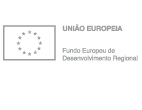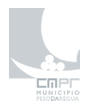Rabelo: sweet travelling
Add MyTrip
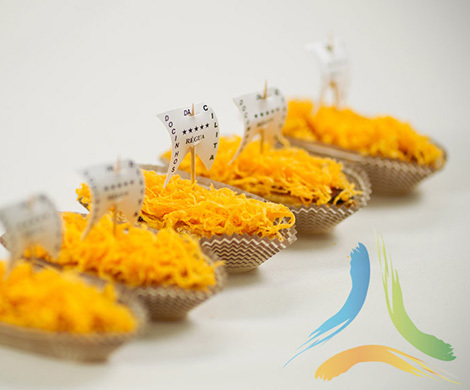
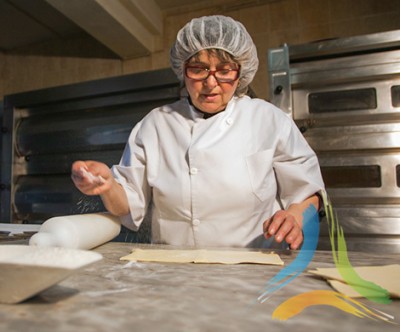
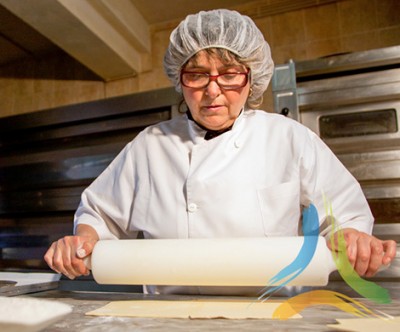
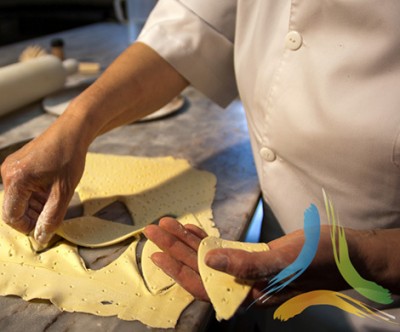
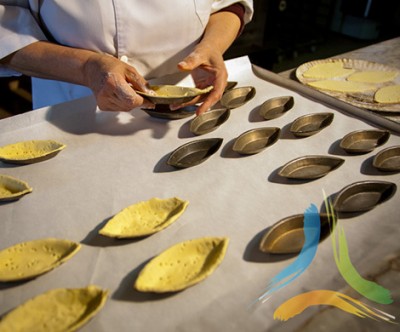
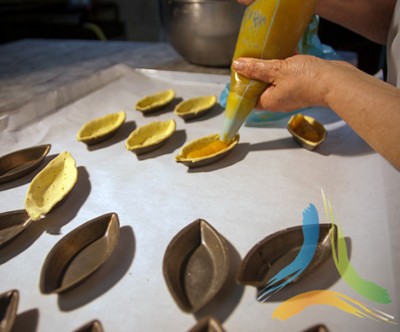
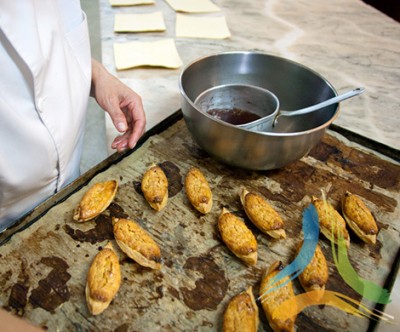
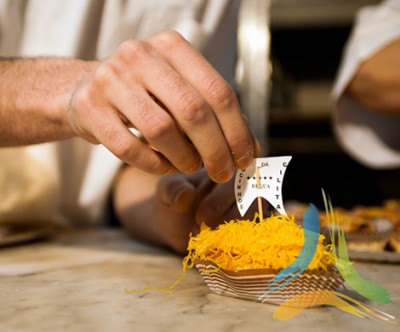
41.16603958385129
-7.793554925964372
Rabelo: sweet travelling
You don’t have to book or buy a ticket, let alone queue up or fear choppy waters. To board this rabelo boat, all you have to do is go to the “Docinhos da Cilita” pastry shop in Peso da Régua, choose your seat and...
Presentation
You don’t have to book or buy a ticket, let alone queue up or fear choppy waters. To board this rabelo boat, all you have to do is go to the “Docinhos da Cilita” pastry shop in Peso da Régua, choose your seat and ride smoothly along with this treat.
The rabelo is a creation of Cezília Teixeira, 63. It dates back to 1992, when she was having a conversation with the Régua writer Camilo de Araújo Correia, and he dared her. “He said to me: “You have such good cakes here, why don’t you make a regional cake? Régua has nothing of the kind and you’re the right person to do it.” I thanked him for his suggestion and then my son Duarte and I decided to make some experiments.”
For six months, mother and son selected and combined ingredients, in a series of attempts to find the most harmonious recipe. Camilo de Araújo Correia was the informal judge, tasting and assessing each result put before him.
And so it was that Cezília, surrounded by a certain secrecy, perfected the formula. “We spent half a year at this. We finally settled for it when Dr. Camilo said: “That’s it,” she recalls.
Cezília’s next step was to register the patent, a “major challenge” that she will never forget. The origin of the name is easy to understand. Born in Vilarinho dos Freires (Peso da Régua), she is passionate about the Douro and this sweet is, naturally, a tribute to her roots.
“I love Régua, the rabelo boats, the river Douro. They’re all bits of myself. I wanted to pay tribute to the Douro, to our ancestors, such hardworking men, and to Port Wine, all the more so as the cakes use it,” she confirms.
In 2010, when Régua celebrated 25 years of being given city status, Cezília’s masterpiece did the honours of the feast; after all, the rabelo boat features in the City’s coat-of-arms.
An unusual architecture
The reason why the rabelo arouses such curiosity lies in its original shape. “As they were the boats that carried the wine from Régua to the lodges in Gaia in the old days, I thought of the shape of the rabelo boat to make this cake.” However, Cezília only found the tin to make this sweet in the city of Porto.
Egg yolks, water, sugar, rice flour, lemon zest, almonds, cornstarch, cinnamon and fortified wine are the ingredients that combine to produce it.
The puff pastry base is filled and it is all topped with angel hair. “First you line the boat tin with puff pastry. Then, using a piping bag, you fill it with the already cold filling. And then it bakes at 170º,” she explains.
The final touch is a true feat of creativity: on the top, Cezília puts a toothpick, symbolising the the mast, and a paper sail on which one can read “Docinhos da Cilita” and “Régua”, the words crowned by five stars.
The client is then treated to a surprise: a crunchy, consistent and moist cake, whose oval shape evokes the Douro’s typical vessels. The flavour contains hints of almond and angel hair, with the distinctive aroma of Port Wine.
The rabelos last up to 15 days, packaged and preserved at room temperature.
Nectars from the Douro
In existence for two decades, the rabelo has already travelled to France, Luxembourg, Spain and Germany. However, it is at the heart of the Douro that its safe haven lies. For a sublime tasting of the nectars from the Douro, have a cup of tea or a glass of Port Wine.
“Those who taste it say it’s delicious and to be recommended. Tourists find the idea lovely and take pictures.” It takes two hours just to produce 24 cakes because the whole making process is traditional. “It’s sold the moment it’s ready,” and the price per cake is 1.20 euros.
With a monthly production of 500 cakes, the rabelos sell better in the summer, as a result of the tourist influx to the region. “They also sell in winter because it’s a cake that goes well with tea, Port Wine and with coffee as well,” Cezília adds.
Text: Patricia Posse | Daniel Faiões
Schedules/Prices
Mon-Sun: 8am-7.30am
Contacts
Owner/Responsible
Cezília Teixeira
Cezília Teixeira
Address
Pastelaria Docinhos da Cilita
Rua Dr. António Fonseca Almeida, Bl.3 – R/C Esq,
5050-274 Peso da Régua
Pastelaria Docinhos da Cilita
Rua Dr. António Fonseca Almeida, Bl.3 – R/C Esq,
5050-274 Peso da Régua
Phone
+351 911 952 615
+351 911 952 615
Latitude
41.16603958385129
41.16603958385129
Longitude
-7.793554925964372
-7.793554925964372









